International
The Venezuelan Prosecutor rejects the use of the concept of “forced disappearance” instead of “arrest”
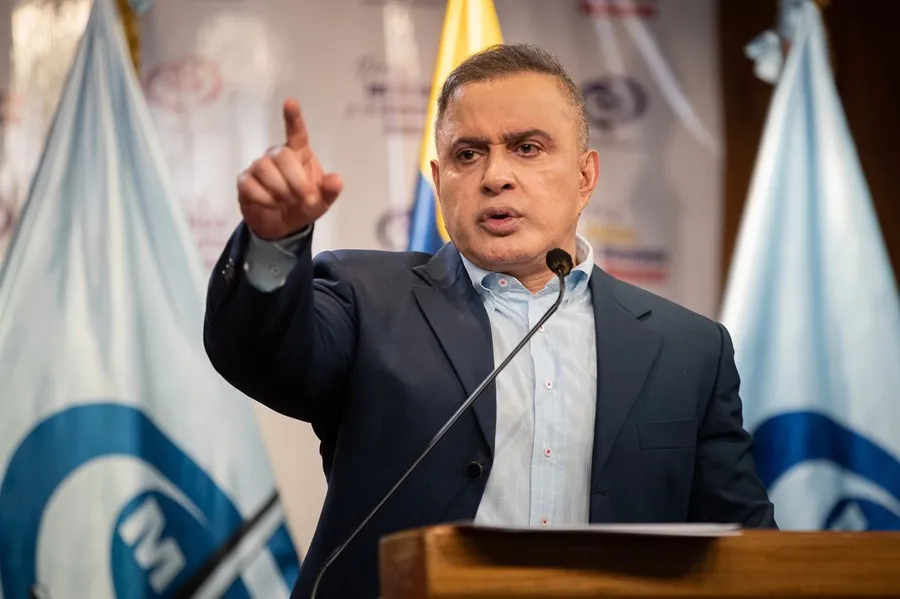
The Attorney General of Venezuela, Tarek William Saab, rejected on Wednesday the indiscriminate use of the concept of “forced disappearance” when there is an arrest of opponents or activists accused of crimes, in which cases – he assured – the State acts in accordance with the rights.
“I find it disgusting that every time the Venezuelan State acts, the international media that look like public facades of conspiracy plans make the figure of forced disappearance appear,” Saab said, referring to the arrest of Whillfer Piña and Renzo Flores, members of the opposition political organization La Causa R.
On Tuesday, Saab reported that these two members of the opposition political organization Causa R were arrested in the town of Maturín (northeast), for the crimes of conspiracy and threats of slaughter against President Nicolas Maduro
Saab explained that the crimes of the detainees Whillfer José Piña Azuaje and Renzo Estibenz Flores, are part of a chain of acts that began in May 2023 and have lasted over time to the present day.
On the other hand, Saab rejected that international organizations, “instead of defending human rights, intend to protect those who want to attack the country.”
“To those who seem that arresting these subjects for threatening the life of the president is an excessive measure, I remind you of the long history of arrests and convictions in the United States for threats against the different presidents of that country,” said the prosecutor, who recalled the successive attempts to attack Maduro, such as on August 4, 2018, for which drones were used.
The official insisted that the State will continue to defend the country’s peace and will avoid, whenever possible, acts of this nature.
Among the evidence found by the authorities, there is the publication of a threat in the Whatsapp state of Piña, which says that “in Maturín (where the Venezuelan president traveled this Monday) it will be the death of Nicolás Maduro.”
On the phone where the WhatsApp was hosted, seized for analysis, a conversation was discovered between Piña and Renzo Flores. In this, groups of armed hooded men are mentioned to carry out the planned operation with other individuals, whose names do not appear in the text.
The prosecutor detailed that, during the interrogation, Renzo Flores stated that he met Piña about 8 months ago. The latter had mentioned to him a plan that he was organizing with former comrades of the Military Academy. It consisted of recruiting 50 soldiers to take one so
The two subjects will be presented to an anti-terrorism court this Wednesday afternoon, accused of conspiracy, association and attempted assassination.
The arrest and subsequent presentation of Flores and Piña before the courts denies, de facto, that there was a forced disappearance, as stated on Tuesday by the opposition Democratic Unitary Platform and Causa R.
International
Maduro signs Economic Emergency Decree to counter U.S. sanctions on Venezuela
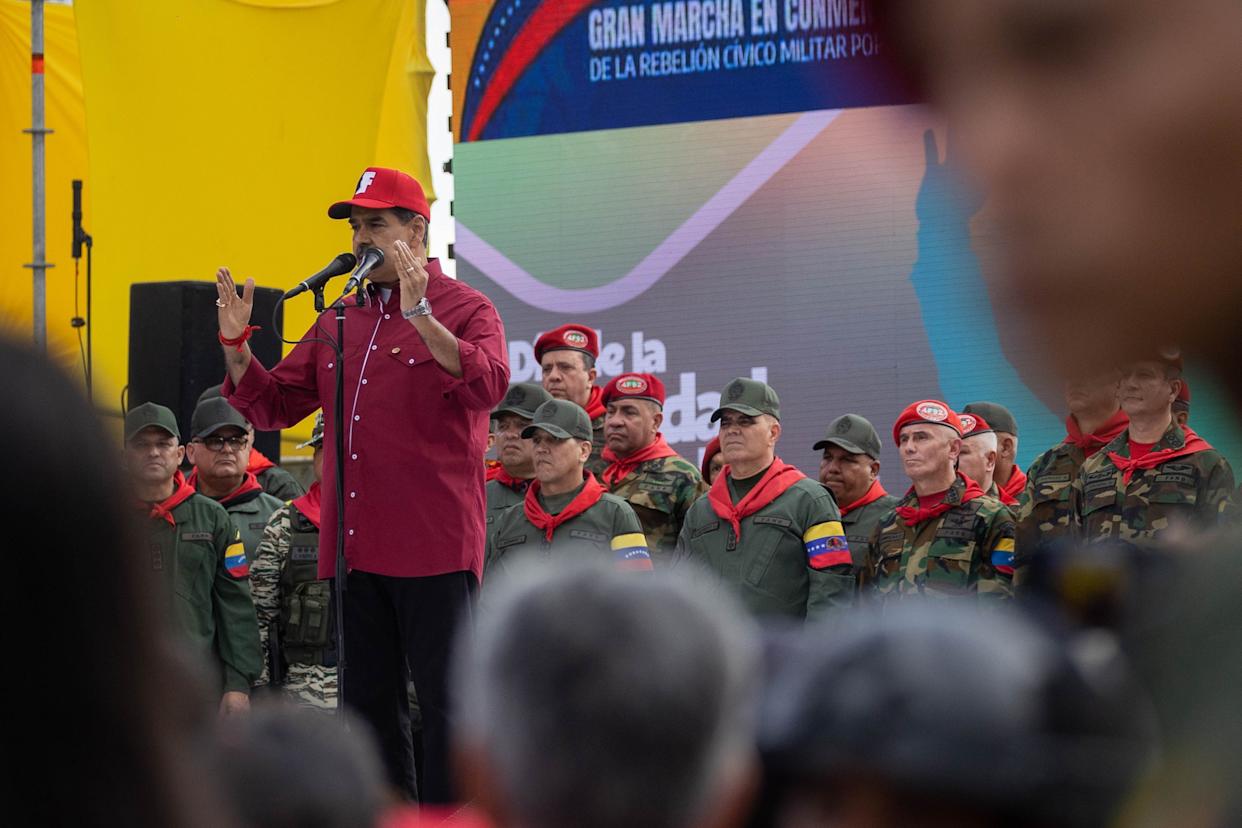
The National Assembly of Venezuela approved on Thursday an economic emergency decree presented this week by the government of President Nicolás Maduro, in response to sanctions and tariffs imposed by the United States.
In March, the government of Donald Trump began suspending licenses for foreign oil companies operating with the state-owned Venezuelan oil company PDVSA and imposed secondary tariffs on crude oil and gas exports. Maduro signed the decree on Tuesday, invoking constitutional articles that allow him to declare states of exception, temporarily restrict constitutional guarantees, or declare a state of emergency in the event of disasters, public calamities, or events that seriously threaten the country’s security.
The emergency decree “is to support national production,” said Delcy Rodríguez, Vice President and Minister of Hydrocarbons, during the document’s presentation.
“The affected oil markets, the fall in oil prices, have already surpassed 30% in our measurement, and this, as we say, is just the beginning,” Rodríguez stated, clarifying that Venezuela’s oil and gas production continues.
Rodríguez also mentioned that foreign oil companies are welcome to operate in Venezuela in accordance with local laws.
The United States has set a deadline of May 27 for oil companies operating in Venezuela, including Chevron (U.S.), Eni (Italy), and Repsol (Spain), to wind down their operations and exports.
The decree grants Maduro the authority to implement measures he deems necessary to ensure economic growth, contain inflation, offer special treatment to investors, suspend taxes, or apply exceptions to tax laws, and establish import substitution mechanisms, among other measures.
Maduro and his government have consistently rejected sanctions imposed by the United States and other countries, arguing that they are illegitimate measures constituting an “economic war” designed to cripple Venezuela.
The president and his allies have celebrated what they describe as the country’s resilience despite these measures, although they have historically attributed some economic difficulties and shortages to the sanctions.
This is not the first time Maduro has governed under an emergency decree. In 2016, he signed a similar decree, which was extended until 2021 under the argument of sanctions imposed on Venezuela by Washington.
With the Assembly’s approval, the decree must now be sent to the Constitutional Chamber of the Supreme Court of Justice.
Central America
U.S. Government says deported migrants should remain in El Salvador for life
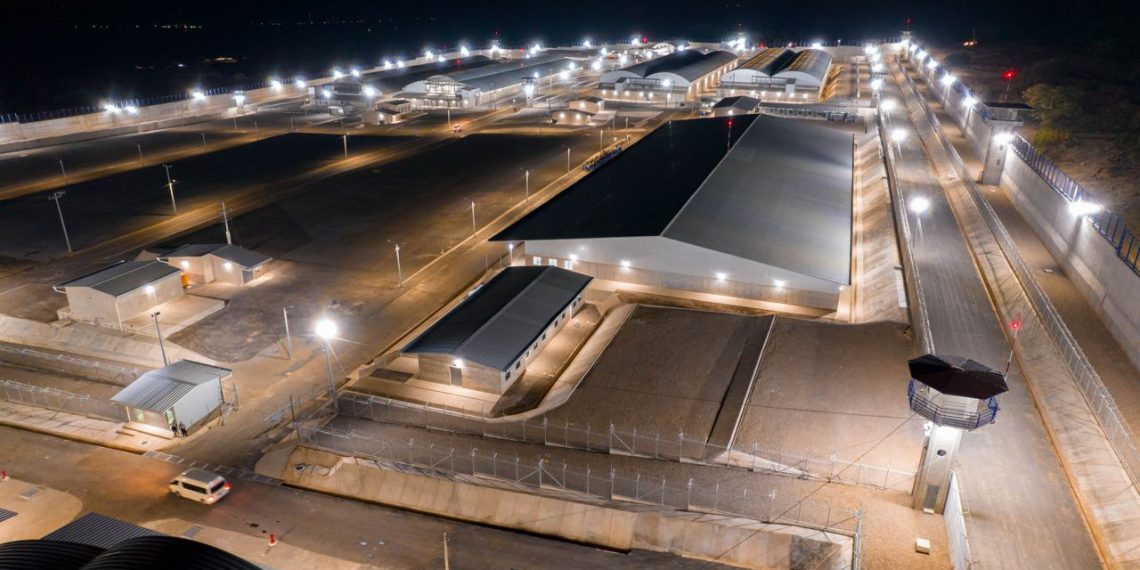
The United States government believes that the 238 migrants recently deported to El Salvador should remain in the country “for the rest of their lives.”
This was stated by Kristi Noem, the Secretary of Homeland Security, during a press conference. The following day, in a televised cabinet meeting, she reiterated the government’s commitment to continue its campaign to deport over 11 million people living in the U.S. without legal immigration status.
“We are confident that the people (sent to El Salvador) should be there, and they should stay there for the rest of their lives,” Noem told a group of reporters on Wednesday.
Despite the Trump administration’s defense of its decision to transfer the migrants to the Terrorism Confinement Center (Cecot), both testimonies from their families and reports from U.S. media outlets have shown that most of those currently detained there have no criminal backgrounds.
International
Italian biologist found dead in Colombia; investigation underway
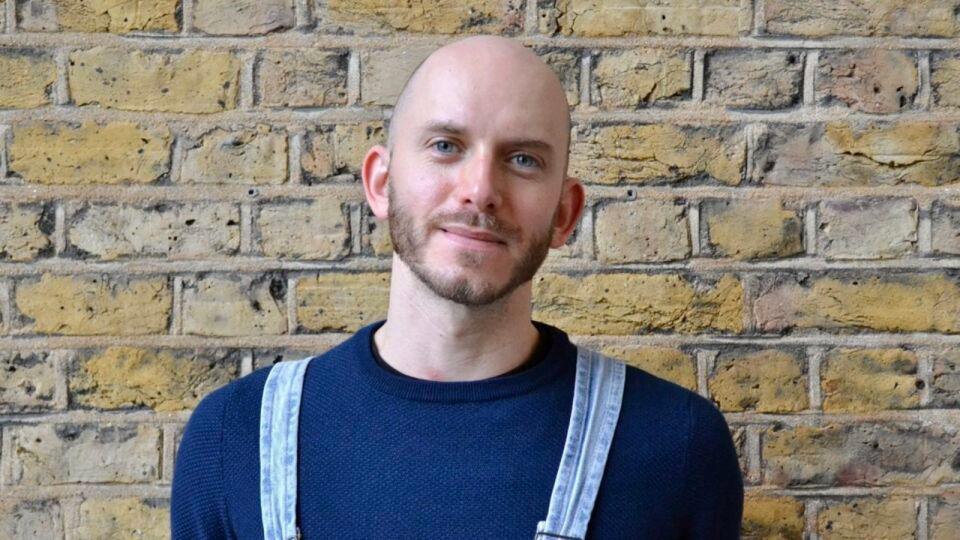
An Italian scientist has been found dead in Colombia, local authorities confirmed, after body parts were discovered along a trail in the coastal city of Santa Marta on Sunday.
Municipal police said that a bracelet found among the remains belonged to Alessandro Coatti, a biologist who had recently embarked on a journey across South America. Additional human remains were later discovered in two other locations within the city.
According to the police, Coatti had been staying in a local accommodation and was reportedly visiting the scenic Tayrona coastal area on April 5. His whereabouts since that date remain unknown, prompting an urgent investigation.
“There are currently no further details available; the case remains under investigation,” Colombia’s Attorney General’s Office said on Thursday. “It is still unclear what happened or where.”
-

 Internacionales5 days ago
Internacionales5 days agoErik Prince Backs Ecuador’s Daniel Noboa in Fight Against Crime and “Narcoterrorism”
-

 Central America5 days ago
Central America5 days agoGuatemala’s Legal Chief Shot Dead in Parking Lot: Investigation Underway
-

 Central America3 days ago
Central America3 days agoHonduras Hosts CELAC Summit Amid Regional Concern Over U.S. Deportations
-

 International2 days ago
International2 days agoRussia and US to Meet in Istanbul for Diplomatic Talks on April 10
-

 Central America2 days ago
Central America2 days agoAudit Exposes Major Breaches in Panama Canal Port Concession, $300 Million Owed to State
-

 International3 days ago
International3 days agoTeachers in Southern Mexico Bring Education to Stranded Migrant Children
-

 Central America3 days ago
Central America3 days agoMulino and Orsi Highlight Shared Vision After Panama Joins Mercosur as Associate State
-

 Central America3 days ago
Central America3 days agoTrump Administration Asks Supreme Court to Block Return of Deported Salvadoran
-

 International1 day ago
International1 day agoMerengue concert turns to mourning as Jet Set collapse claims 136 lives
-
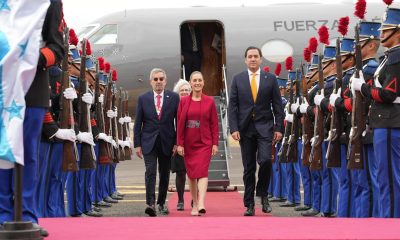
 Central America1 day ago
Central America1 day agoMexico’s president proposes regional economic summit at CELAC
-

 Sports2 days ago
Sports2 days agoNeymar Returns to Santos Training After Month-Long Injury Layoff
-
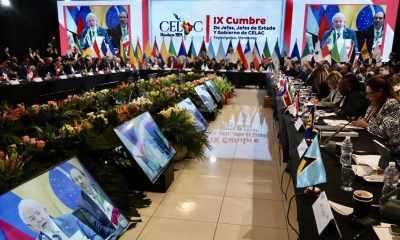
 Central America1 day ago
Central America1 day agoColombia to host fourth EU-CELAC Summit in November
-
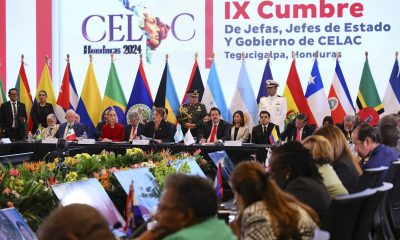
 Central America1 day ago
Central America1 day agoCELAC condemns unilateral sanctions in ‘Tegucigalpa Declaration’
-

 International2 days ago
International2 days agoMaduro Announces Economic Emergency Decree Amid Growing Tensions with the U.S.
-

 Central America4 hours ago
Central America4 hours agoNicaragua seeks ICJ intervention in Gaza conflict amid escalating violations
-

 International2 days ago
International2 days agoScience Brings Back the Extinct Direwolf with Successful De-Extinction Project
-

 International2 days ago
International2 days agoTransgender Student Arrested at Florida Capitol for Using Women’s Restroom Under New State Law
-

 International4 hours ago
International4 hours agoItalian biologist found dead in Colombia; investigation underway
-

 Central America4 hours ago
Central America4 hours agoU.S. Government says deported migrants should remain in El Salvador for life
-

 International4 hours ago
International4 hours agoMaduro signs Economic Emergency Decree to counter U.S. sanctions on Venezuela















